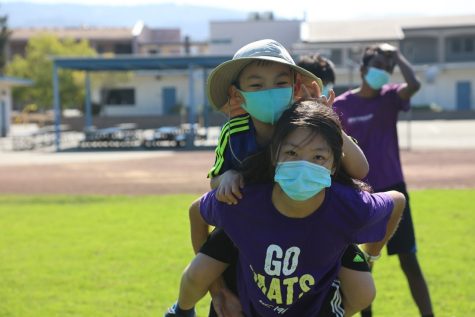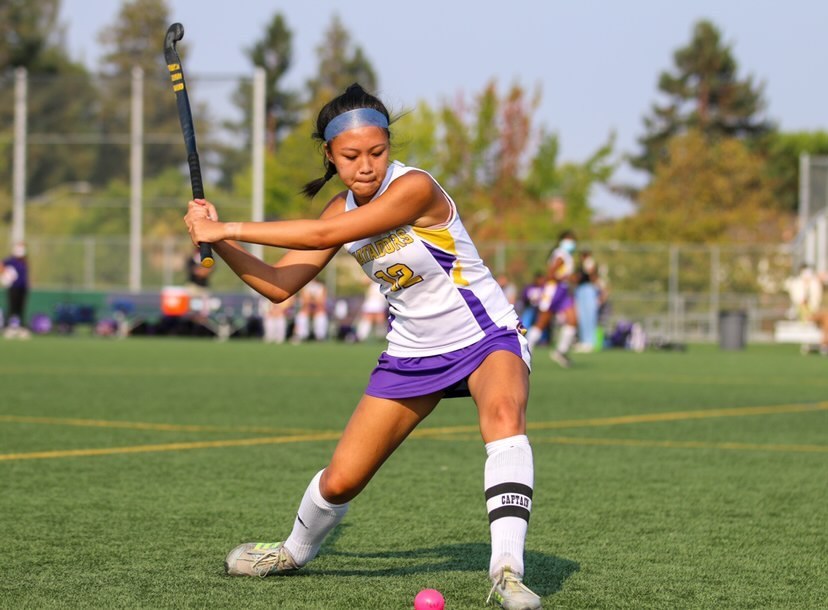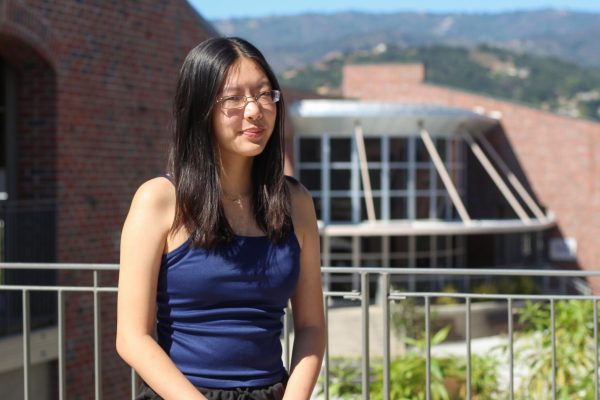Students share about coaching youth sports
Three athletes discuss the impact of being both coaches and competitors
Photo by Arnold de Leon | Used with permission
Senior Ashley Twu lunges forward to take a shot during a field hockey game.
November 16, 2021
Senior Ashley Twu is both a student and a teacher — she’s both a player and captain for the field hockey team and a coach for the San Jose Fly Field Hockey Club, which she’s been playing for since she was 11. For her, it’s vital to know the specifics of a sport to be able to teach it.
“As a coach, you have to make the drills, you have to look at how the player is playing and you have to change what you want to teach them based on what you see,” Twu said. “And then you also have to recognize when there are errors being made.”
Junior Agnes Wang is a member of the cross country team and a coach for Wabi-Sabi Sports, a sports camp for children led by MVHS athletes.
“When you’re a coach, you become a lot more self-conscious of a lot of things you coach, like your running form,” Wang said. “I guess the experience has made me more aware of myself.”

As the captain of the badminton team and a badminton coach at the Cupertino Sports Center, senior Kevin Cuan has seen firsthand the impact his coaching has had on his students. Cuan fondly remembers watching his students improve their technique and grow to be more open towards others.
“There’s this one kid who likes to talk a lot now. He’s in elementary school and I know what YouTubers he watches, and he likes to talk about stuff that goes on at school,” Cuan said. “As you continue [coaching] for weeks over and over and over again, the kids sort of open up and you learn more about them.”
By implementing what he has learned from being a coach to his team at school, Cuan hopes will become more confident in leading his team.
“I’ve never really thought of myself as a good leader, because I’m not really good at making decisions, and a lot of the time I let people do what they want to do,” Cuan said. “I feel like [I’ve] gained more confidence in telling people what to do.”
Similarly, Twu hopes to implement what she’s learned from coaching field hockey to become a better leader for the field hockey team. Twu hopes to guide her team by passing on the skills she’s learned from her previous coaches to new players to help them improve.
“Some of [my coaches] I’ve known since seventh grade, and they’ve shaped me into a great player,” Twu said. “And now I’m working alongside them to help coach new players and do the same kind of thing.”


















